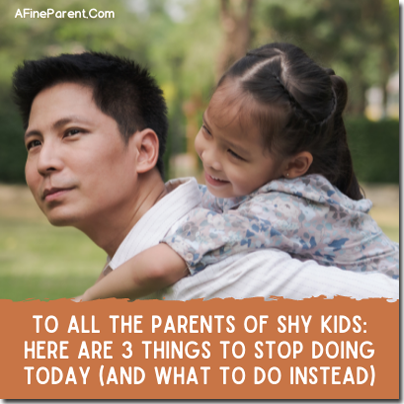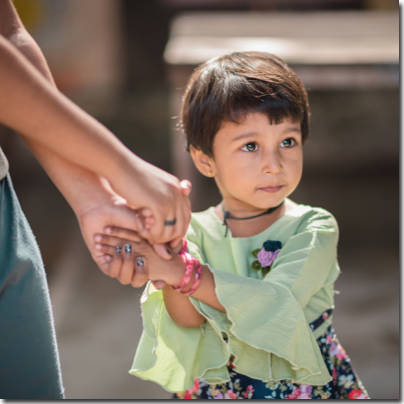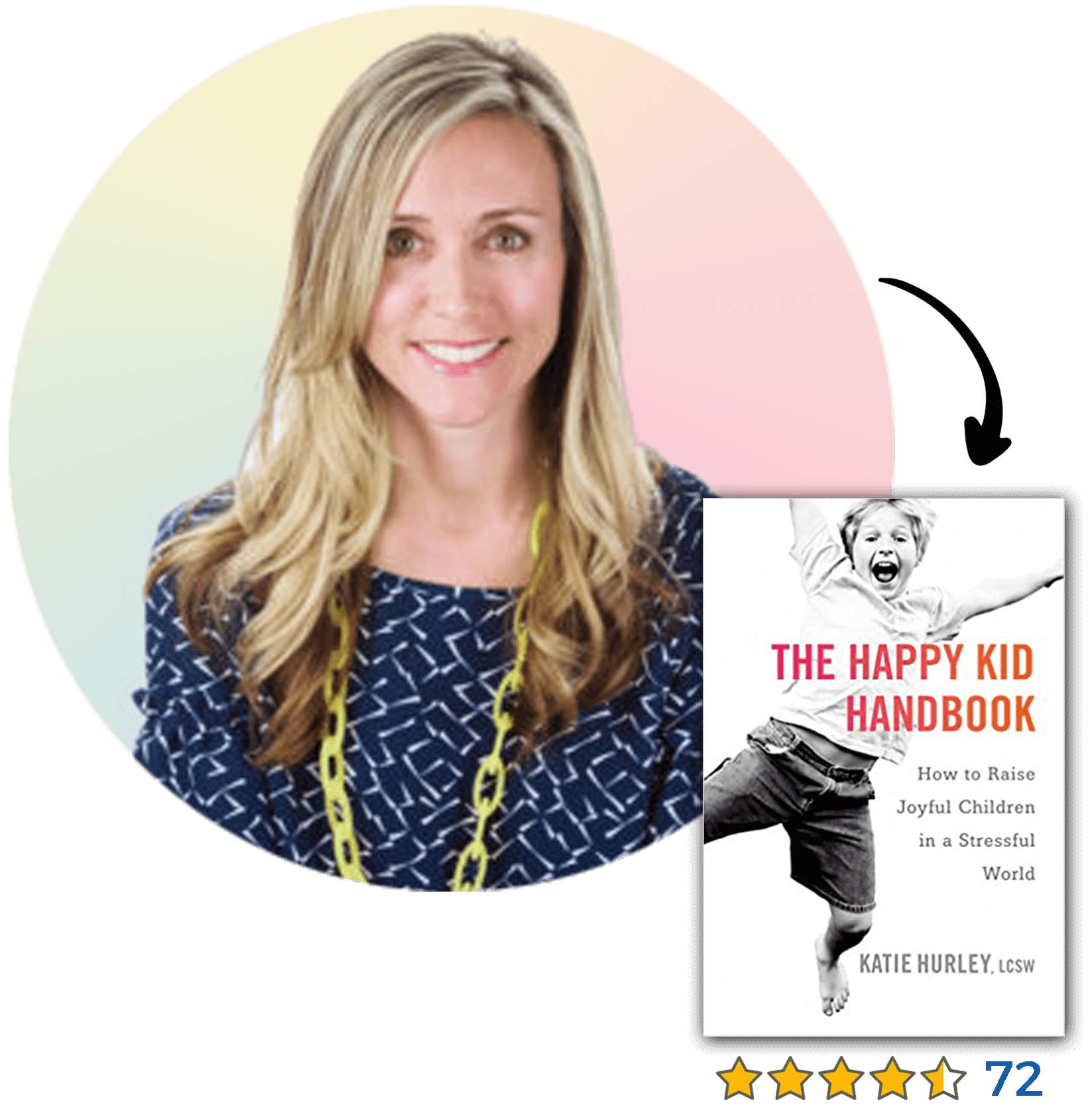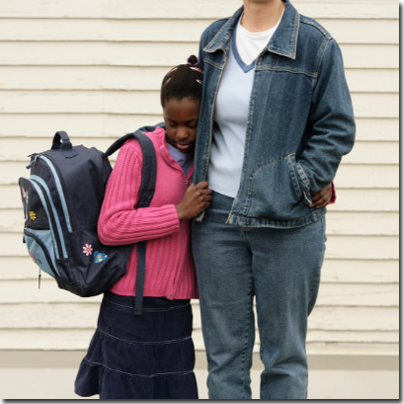 I was a shy kid growing up, evidenced by hilarious home videos at gymnastics or Easter egg hunts, where I would walk hesitantly from station to station or gingerly stroll as I collected a grand total of two eggs.
I was a shy kid growing up, evidenced by hilarious home videos at gymnastics or Easter egg hunts, where I would walk hesitantly from station to station or gingerly stroll as I collected a grand total of two eggs.
While most of the other kids were going wild, being adventurous, and jumping into the action without a care in the world, I preferred to hang near my parents. I would stick close to a comfort person while I assessed the situation and in large groups, I would rather listen than be the one to chime in. I can still be like that now as an adult (although I have, thankfully, long stopped clinging to my parents’ legs).
I still remember situations throughout childhood in which I would overhear other parents say, “Ohh, is she shy?” their voices dripping with sympathy or pity. Every part of my insides would cringe and I would want to disappear.
Fast forward to the present and I now have a two-and-a-half-year-old son who reminds me of the same child I was, clinging to my parent’s leg. He hangs out by my side at birthday parties to assess the situation before jumping in to play with the other kids. As he navigates a playground, I can see him assessing the ins and outs of each slide before taking the dive down.
How big is it? How do I get up to it? How do the other kids go down? When he eventually goes down the slide, he will almost always run back to me to “check in.” He has clung to my leg on more than one occasion.
Yes, my son is a lot like me, but I am refusing to let anyone call him shy. If you also have a child who is hesitant to jump in or needs a little extra comfort in social situations, we can use reframing to change our attitude and reaction to shy behavior.
Reframing is an amazing technique that may not be specific to parenting but can be a powerful way to think more positively about our child’s behavior or find the “silver lining” of a trait that is easily assumed as negative. Reframing allows us to view a behavior with understanding and positivity.
Read on to understand why we should stop calling our kids shy and ways in which we can reframe our mindset on shyness.
Stop: Putting Our Kids in a “Box”
 When we label our kids shy, especially when in front of them, we place them into a box, essentially communicating, “this is what you are, so this is how you are supposed to act.”
When we label our kids shy, especially when in front of them, we place them into a box, essentially communicating, “this is what you are, so this is how you are supposed to act.”
Whenever I was labeled shy as a child, I would, in fact, become more shy. Never once did I suddenly become more gregarious or adventurous right after someone said I was shy.
Labels do not necessarily all have to be bad. For children with disabilities, identifying the disability with a label can potentially open the door for support they wouldn’t otherwise have access to.
However, giving our child any one-dimensional label based on a small part of their personality or one specific behavior suggests that the characteristic is a fixed trait or that personality cannot be fluid. The danger with this suggestion (even if not intentional) is that children are observant and will often absorb the labels they hear adults call them–which can be difficult to shake off.
I often think about when I was younger, and I heard people call me shy. The little voice in my head would scream out, “But I’m not always shy! When I’m with the neighborhood kids playing wiffle ball in the streets or performing plays with my cousins, I’m not shy! I’m loud and silly and funny. I wish you could see me then. But right now I feel stuck in being shy because you called me out on it.”
Reframe how we think about labels:
Clinical psychologist and mom of three, Dr. Becky Kennedy, says in her podcast that parents should be mindful of what we label our kids in their presence.
Rather, she advises us to talk to our child about how they can be different things in different situations to avoid having our children feel stuck in one label. Instead of thinking of our children as shy kids, we can think of them as diverse and flexible in their personality, depending on the situation they are presented with.
For my own son, this conversation has sounded something like this:
When you go to the park and see all the other kids playing, you feel cautious and curious, right? You like to see how the kids are playing and what there is to play with before jumping in. You really want to play with them, but you feel a little nervous at first because you don’t know what to expect. That’s okay. You can feel two things.
But then sometimes when you are at home with other kids, you are loud and go wild like a silly monster. You dive right into playing and making a mess.
I see you are different at different times.
Using this tactic can be a good reminder to us parents that we should never get stuck on just one small part of our child’s personality because we will miss out on the huge rainbow of traits they possess!
Stop: Believing Cautious Behavior Isn’t Normal
 It’s not unusual for parents to jump to saying “they’re just shy,” as an explanation of a child’s hesitant behavior. Reality is that being cautious in the face of unfamiliar situations, environments or people should be totally acceptable behavior from our children. So why do we say it?
It’s not unusual for parents to jump to saying “they’re just shy,” as an explanation of a child’s hesitant behavior. Reality is that being cautious in the face of unfamiliar situations, environments or people should be totally acceptable behavior from our children. So why do we say it?
It’s most likely that the quick label of “shyness” when a child is simply showing caution or hesitancy is more about our own emotions than our child’s. If shyness has caused your child to hesitate in responding to adults, it may be easily misinterpreted as disrespect–which may elicit feelings of embarrassment or shame towards the child’s behavior. This could be especially true if perceived disrespect is a parenting trigger for you!
The problem with a quick explanation of shyness, especially when in front of our child, can suggest to our child that they are flawed or have a deficit. A fast statement that may be the automatic result of our own emotion can suddenly become a suggestion that our child should be embarrassed by a perceived flaw.
Reframe how we think about cautious behavior:
Being shy in new situations or around unfamiliar people can be a wonderful strength for children; indicating that they are in tune with their emotions regarding safety and have the self-awareness that their own comfort level is increased when allowed to first observe their surroundings.
Cautiousness or hesitancy in new situations does not automatically indicate an introverted personality type that will lead into adulthood. Introverts strongly prefer a certain amount of solitude, while children who exhibit shyness in new social situations may be slower to warm up but most likely seek the company of others.
We can reframe how we think about cautious behavior by focusing on the positive aspects often associated with shyness, including doing well in school, behaving and following rules, and listening attentively to others. In fact, shy kids are most often considered by caregivers as easy children to look after.
Stop: Believing Shyness = Lack of Confidence
 Shyness sometimes gets confused for a lack of confidence in a child. From my own experience, I can say that although I could be shy, I definitely wasn’t lacking confidence; and I can see that my son does not lack confidence either.
Shyness sometimes gets confused for a lack of confidence in a child. From my own experience, I can say that although I could be shy, I definitely wasn’t lacking confidence; and I can see that my son does not lack confidence either.
Dr. Becky goes as far to say that shyness is confidence and I’m one hundred percent on board with this message. To explain this, she gives an example of two sets of parents who came to her for advice. The first set of parents had a toddler and were lamenting about how shy he was during birthday parties and how they wished he could have the confidence to join his friends on the soccer field.
The other set of parents had a teenage son. They were concerned about how their son got suspended at school for following the crowd. Their strife was over how they wished their son could say ‘no’ to what his friends were doing and realize that their behavior wasn’t for him. Why couldn’t their son be more confident?
Wow that example is powerful. As parents, we want our kids to grow up with the ability to have a voice of their own and to say no when they feel something isn’t right.
And when our shy kids don’t join in with all the other kids, they are, in fact, asserting confidence in the situation. They are confident enough to listen to their own bodies and feelings. Right now, I don’t feel comfortable doing this, so I am not going to.
This is true in my situation. I grew up with the ability to say no in the face of peer pressure, try hard things, and make positive friendships.
Reframe how we think about confidence:
Next time our child exhibits signs of shyness, we can remind ourselves that shyness may be a sign of moral excellence and the ability to be hesitant until what is happening aligns with their moral standards. This is a hugely beneficial skill for children as they grow older and experience peer pressure.
Confidence doesn’t have to mean being the first to jump into the action. Confidence is knowing how you feel inside and listening to that feeling. It’s knowing how to say no in the face of peer pressure and picking the friends that you feel comfortable around.
When we notice our child being shy, we can be proud that they are listening to that voice inside of them. “Right now I don’t feel comfortable, so I am just going to observe first.”
 Want more tips for raising confident assertive kids? We partnered with Katie Hurley, a child and adolescent psychotherapist, to bring you a packed masterclass with many practical tips you can you start using right away!
Want more tips for raising confident assertive kids? We partnered with Katie Hurley, a child and adolescent psychotherapist, to bring you a packed masterclass with many practical tips you can you start using right away!
This packed Raising Assertive Kids Masterclass is one of the 70+ life-changing masterclasses in our AFineParent Academy masterclass library. Click here to get INSTANT access now!
How to Handle Shyness with Your Child
 Reframing our mindset of shyness allows us to have a healthier attitude towards our child’s hesitant behavior. As we are the largest influence on our children, this alone may positively impact our children to take the risks we want them to take.
Reframing our mindset of shyness allows us to have a healthier attitude towards our child’s hesitant behavior. As we are the largest influence on our children, this alone may positively impact our children to take the risks we want them to take.
When a child starts showing signs of shyness, parents can do a few things to help encourage them to join in on the social fun:
- Validate their feelings– Let your kids know that it’s okay to feel shy or nervous in certain situations. It’s okay if you don’t always want to play on the playground equipment. Some of it is big and looks scary.
- Relate and Empathize– Tell a story of a time when you were shy. Sometimes when I meet new people, it’s hard to figure out what to say to them. I don’t always have the right words and I feel shy, just like you.
- Prepare ahead of time– A lot of young kids have spent a good percentage of their lives not going out or socializing due to the Pandemic. Their lives have been marked by a hesitation to interact with the world. Add this to a child who is already predisposed to feel shy in new situations, and it could be the perfect storm.
To confront this issue, Dr. Becky reminds us that we can be upfront about the issue of safety and talk to our children about what they can expect when going out. Familiarize the unfamiliar.
My job is to keep you safe. I assessed the situation, and I think it is safe to go to your friend’s birthday party at the playground. I looked up the playground online. Do you want to see what kind of things that will be on the playground? Ohh look at the slide. You will have to climb up here to get to it. What do you think of that?
Shyness doesn’t have to be a label that we stick on our child when we know that our children possess such beautiful and vast arrays of traits and characteristics. Even if our child is shy at times, it may just be an indicator that they are deeply in tune with their body and feelings. We can foster that as a strength and provide support to our children by reframing our mindset of shyness!
The 2-Minute Action Plan for Fine Parents
Take a few minutes to contemplate or journal the following questions:
- Does your child exhibit behaviors of shyness? When does this shyness arise? In what situations?
- Examine how you feel when your child is being shy. Do you feel embarrassed by his or her actions? Do you feel ashamed? Ask yourself why you feel this way.
- Do you label your child as shy in front of him or her?
- If you find yourself reacting to your child’s shyness negatively or find yourself labeling your child, start to reframe your thinking toward shyness by using some of the key points above.
The Ongoing Action Plan for Fine Parents
If you find that you need help rethinking your child’s shyness, try out the following for the next few weeks. It may be helpful to write down what you want to remind yourself to turn to and post it somewhere visible in your house:
- Avoid labeling your child: Take the word “shy” out of your vocabulary!
- Point out how your child can act differently in various situations.
- Repeat this mantra when you find yourself becoming embarrassed of your child’s shyness: “My child is confident, not shy. He/she is listening to his body. This is a good thing. I am a good parent.”
- Stop other people from labeling your child. “He likes to assess the situation before jumping in. I like that about him.”
- Validate your child’s feelings when they are hesitant in social situations.
- Prepare your child ahead of time for what to expect in new social situations.
I’m working on this with my son! So question, how do you respond to other adults who comment on the shyness of your child?
Thank you for expressing a sensitive subject. I was painfully shy as a child and well into my teens. My mother made it worse by lecturing me and being angry when I didn’t speak loudly to others in public. I learned what timid meant at 11 when I embarrassed her in a meeting by not commenting. On the ride home she angrily lectured me for 15+ minutes on being too “timid.” Shy people don’t like confrontations. My shyness was made worse and reinforced every time she showed her annoyance in my behavior. People don’t realize this characteristic in an individual is not a reflection on them. You are correct in mentioning labels. I am no longer shy. I out grew the need to remain silent. I no longer feel the fear of my thoughts and wishes being heard. This subject should be addressed more often. Thanks again!
Thank you for the helpful tools.
The article first, made me think of all the times I have called my kids shy in front of others and second, how I ask my kids to trust me and tell me when something is wrong or when they don’t feel comfortable.
I can see now the big disassociation. They are already telling me when they don’t feel comfortable in a situation or with a person.
Nice idea for an article. Totally related to it. I always ask my child why they behaved in certain way in a certain situation. This helps them articulate to me as a parent without fearing any backlash or anger and also gives them confidence to tell us anything. Also the message of not branding a feeling or behaviour as necessarily negative in kids is very simple yet so powerful.